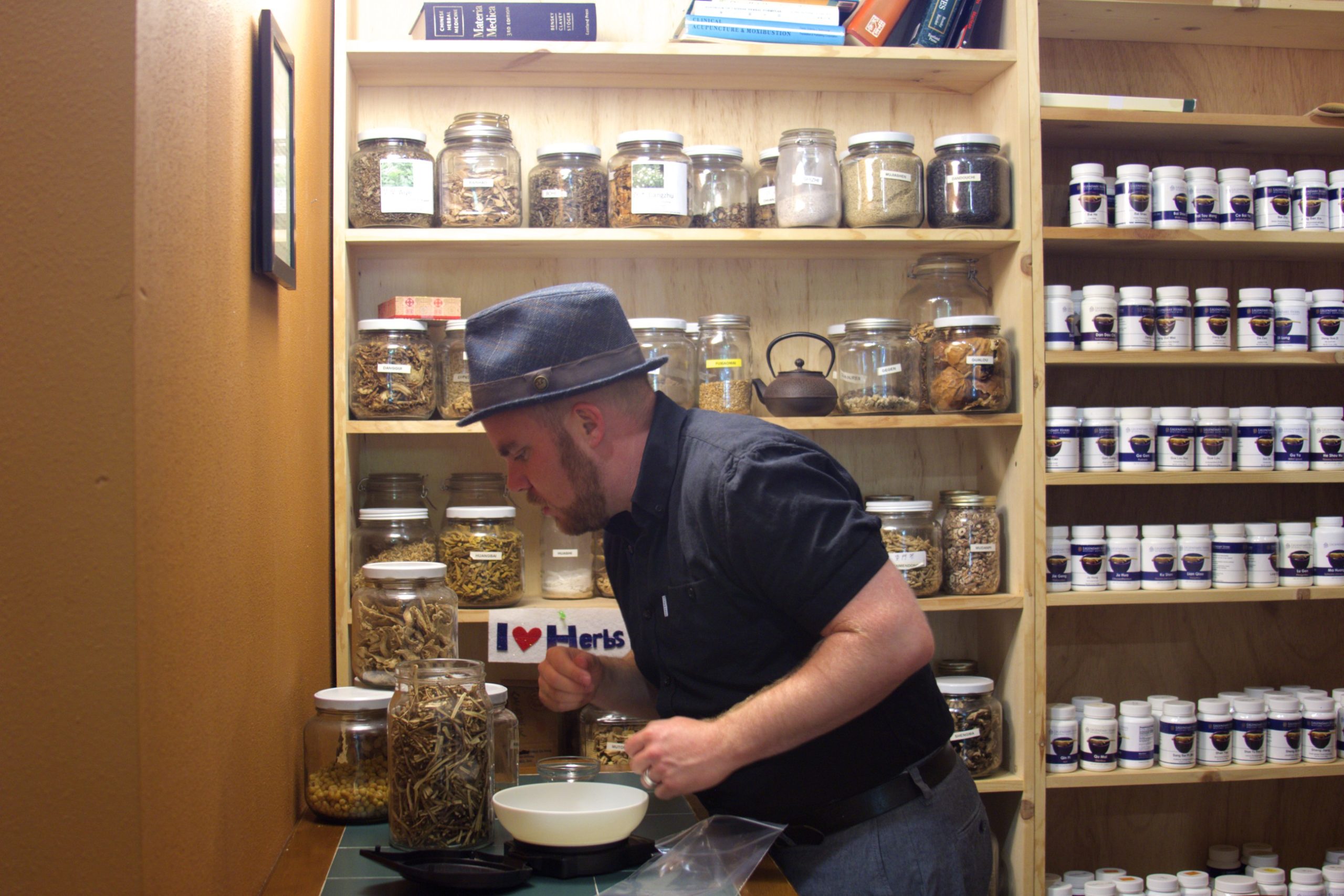I have been a practicing acupuncturist and herbalist at Watershed Wellness since 2009. During that time, my practice has undergone a lot of changes. Early on, I tried a little of everything I learned in school. Eventually, I settled on a bastardized Worsley + Tung-style acupuncture style combined with the much stronger focus on classical Chinese herbalism. This has served me, and my patients, well this last 12 years.
Then, of course, 2020 happened.
The pandemic has taught all of us a lot. I think I’m not alone in launching into a state of deep self-reflection because of the events of the last 12 months. The situation with the virus, and our early uncertainty around it, led us to close the clinic for three months. That’s the longest I’ve not actively worked for my entire adult life. During that time, I did a lot of thinking about whether and how I would return to practice. In the end, my desire to respond to the needs of my community and our ability to put robust infection control measures in place helped me to return to practice as I had been – more or less unchanged.
But *I* had changed.
The time away had given me the chance to move into a more reflective mode as I started practice back up. And almost immediately what I noticed is that acupuncture is immensely draining for me. Some signs were subtle, some less so. Looking back, I could see how my body had been trying to tell me this for some time – but I wouldn’t or couldn’t recognize it.
Truthfully, I have never really been an “acupuncturist.”
Acupuncture has always been the extra thing I have to add on because people expect it. And despite myself, I seem to be pretty good at it. Patients enjoy my treatment, and I have seen big transformations in needle-only treatments. That said, Chinese herbs have been my passion since my earliest days of training, and they are what most consistently brings me and my patients results.
Further, I don’t get acupuncture myself. I’m actually quite needle phobic, hilariously enough. Attending acupuncture school required an enormous amount of personal growth and gritting my teeth through the needling classes. It is not a comfortable treatment for me personally, so I don’t get it. I find that problematic! I think we should be engaged in treatment ourselves as part of our evolutionary process as practitioners. If I’m not getting acupuncture, or worse, even actively dislike it, can I really be lifting this practice to its highest level?
As time went on, the lessons of the pandemic clinic closure did not fade away. In fact, the sense of needing to make a change got stronger until it was my constant companion. As we approached the fall, I felt sure that a major transformation in my practice was necessary.
Gnawing anxiety accompanied my growing sense of certainty.
Acupuncture is what most Americans know about Chinese medicine. It is very rare for a patient to call and ask for an herbalist. When it happens, it’s normally someone looking for 淫羊藿 Yinyanghuo to help them with their sexual function, or someone asking whether I can prescribe weed. So, considering dropping the most recognizable part of my practice seemed, and still seems, frightening.
But the discomfort of continuing along in the previous way increased with every workday. Nothing I tried made acupuncture treatment significantly less draining, though reducing the total number of patients and limiting highly energetically sensitive patients both helped some. Ultimately, my body and the universe conspired to make sure I couldn’t stop thinking about making a change.
Why I decided to follow my heart’s path
Every year, Watershed Wellness does an annual planning process. This year, we also did a rough 10-year plan. Obviously, nobody has any idea what’s going to be happening in 10 years, we’re not delusional, but having some sense of your trajectory in business is pretty important in use of resources. So we gave it our best. As I contemplated that plan, I realized there was no place for acupuncture in my professional future. Not in 10 years, not in 5, and probably not even in 1.
Ultimately, though, what really got me settled in my decision was my growing excitement about what will be possible with this transformation. Above all, dropping acupuncture means that I have more time, energy and money to focus on my herbal practice.
This means more continuing education, more independent study, and more time to focus on how to make herbs-only practice as effective as possible. It means getting to spend my moments between treatments fully immersed in my lineage rather than trying to embrace something I’m not naturally inclined towards.
It will mean a flourishing of my life with herbs – and nothing could make me happier.
I know others have done this, and many more are interested in doing it. For that latter group, I am writing more articles digging into the details of how I’m developing my herbs-only program. You can read Part 2 here and Part 3 here.
For the former group, I’d love for you to head to the forums and discuss how it’s gone for you. If you’re not registered, just click the registration link on that page – if you run into issues, please reach out.

[…] and began to discuss the process I’m undergoing to make it a reality. You can read the first part here, and the second part […]